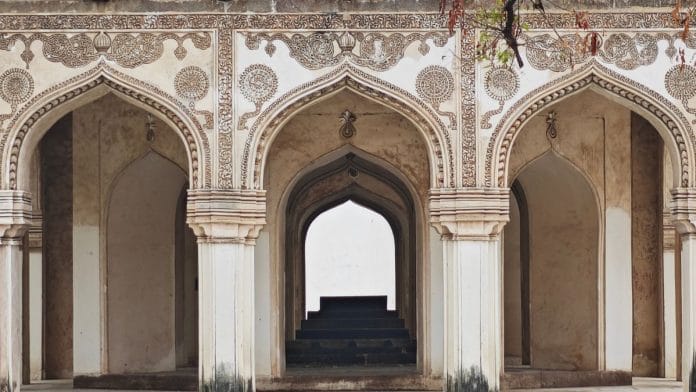As a Hyderabadi, I never learned about my own region—Telangana before it became a state—in school. We were only taught about Andhra Pradesh and the Indian independence movement. This was the reality of generations who grew up in Hyderabad and Telangana.
Kids were taught absolutely nothing about Telangana, or about the founders of Hyderabad (Golconda dynasty, 1518-1687), or the later Nizams of our city. That was the extent to which rulers in the joint state of Andhra Pradesh went to erase our history from textbooks. The cultural domination of the Andhra region pushed people of Telangana to demand a separate state, which was eventually formed on 2 June 2014.
Everything I know about my city and state, I learned on my own when I decided to get acquainted with Hyderabad’s history. Luckily, after Telangana’s formation, history books were revised by the then Bharat Rashtra Samithi (BRS) government.
However, one aspect of the state, which is crucial to understanding modern Telangana, was left untouched on purpose—perhaps to avoid stirring the hornet’s nest. That is the peasant rebellion, called the Telangana Armed Struggle (1946-51), and the Indian Army’s annexation of Hyderabad on September 17, 1948.
Operation Polo was the military action through which the Hyderabad state (1724-1948) was annexed after its last Nizam, Osman Ali Khan (1911-48), decided to stay independent when the British left India in 1947. The contested bit of history had been buried by the Congress government at the Centre, largely due to its bloody aftermath—it resulted in the death of at least 26,000 to 4,000 Muslims, according to the Pandit Sunderlal Committee report.
BJP, Razakars & Hyderabad Day
Post the formation of Telangana, there wasn’t much clamour about it. However, after the BRS came to power for a second time post 2018, there has been a renewed push by the BJP to observe the annexation date as ‘Hyderabad Liberation Day’—a phrase coined to indirectly say that Telangana was freed from the Nizams.
The BRS ignored it for a while, but it was forced to address the issue. It marked the day as ‘National Integration Day’ to skirt the BJP’s narrative. Added to all of this was BJP leader Gudur Narayana Reddy’s movie Razakar: The Silent Genocide of Hyderabad, which also paints Muslims in a negative light.
The movie is about the Muslim militia Razakar, formed in 1947 by then Majlis-e-Ittehadul Muslimeen (MIM) leader Qasim Razvi, who let his men loose on the populace, especially on Hindus. However, the movie ignores the Communist Party of India (CPI)-led peasant rebellion, and has incorporated characters such as Chakali Ilamma without attributing her support from the Left party.
Moreover, neither the textbooks nor the movie address the biggest issue that existed then—the feudal system, which was the bane of society and led to bonded labour under the Jagirdars, the state revenue collectors under the Nizams.
Also read: Congress in Telangana gave award to Razakar—a propaganda film that demonises Muslims
Fix the information gap
The then BRS government had a great opportunity to correct these omissions in our history textbooks. Had it done so, maybe we would not have a population unsure of where to even begin when trying to learn about itself. It is a fact that information about Hyderabad’s history in the public domain is sparse. One has to dig deep or visit public libraries that are not exactly well-maintained.
Now that people from Andhra don’t dominate our narrative and culture anymore, we must reconsider what we mention in our history books and not make the mistake of hiding the truth from the people. It is not just about informing, but giving perspective and understanding of our histories in school is also important for the formative years of children.
It allows us to counter hate and hateful narratives. The only way to do this is by honestly putting out information. Yet, the state government, which has been trying to reshape Telangana’s image with a Congress stamp, oddly chose to give the Razakar movie three Gaddar Awards—an honour it recently decided to institute in 2025.
This speaks volumes about the state government’s priorities. If it does not correct this wrong, then generations of children in Telangana will once again grow up learning either nothing, or information that will be full of half-truths.
Yunus Lasania is a Hyderabad-based journalist whose work primarily focuses on politics, history and culture. He tweets @YunusLasania. Views are personal.
(Edited by Ratan Priya)






